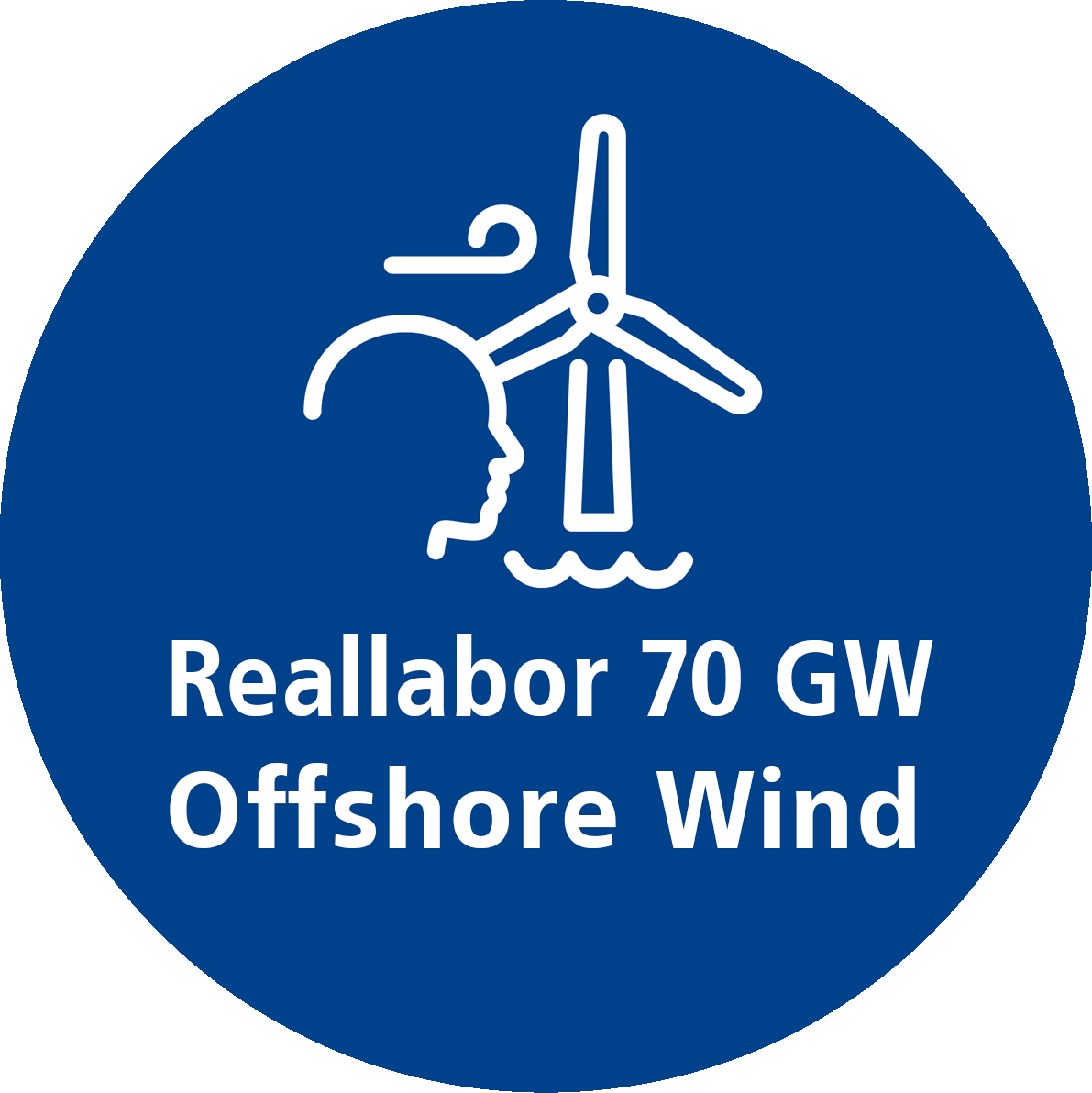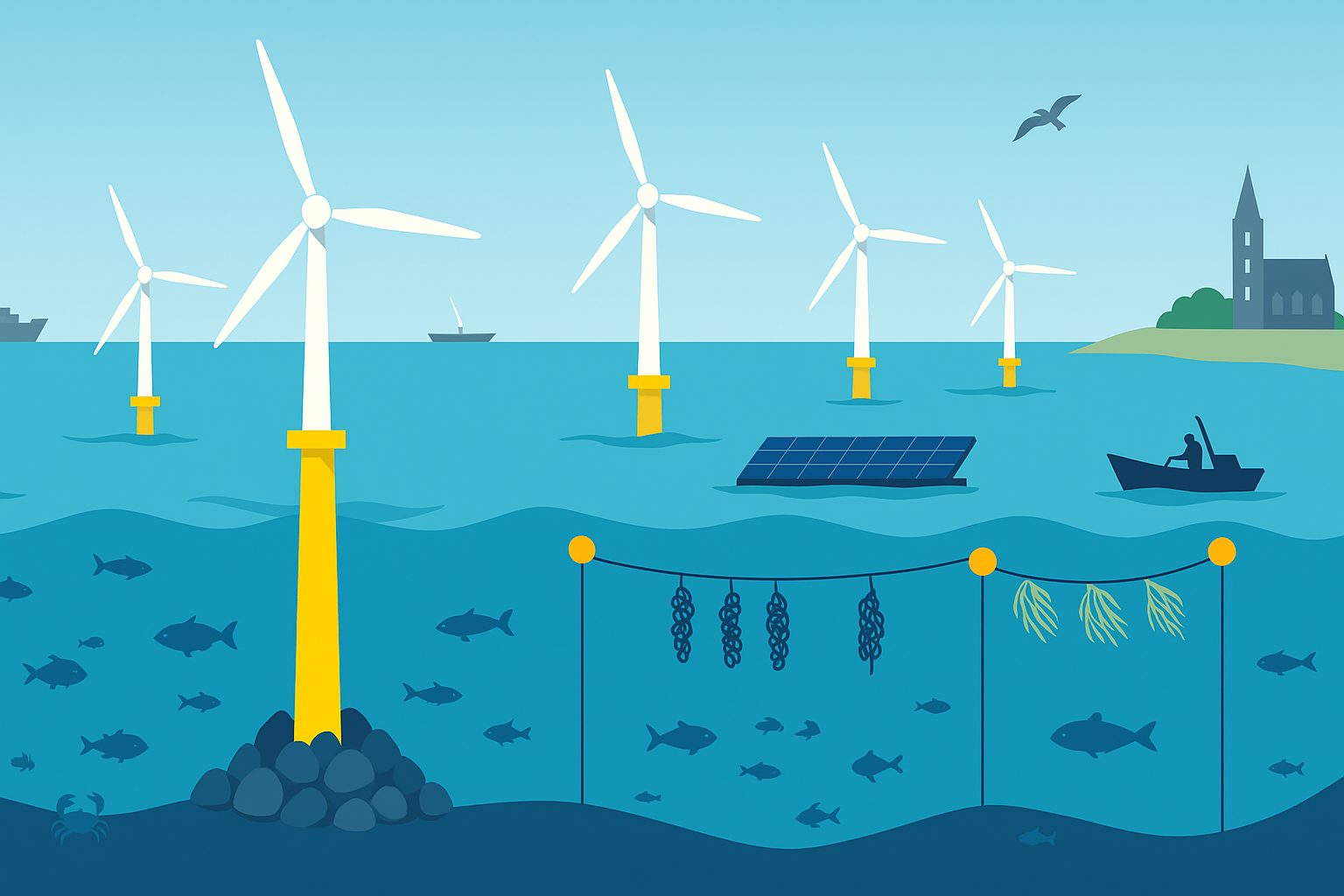How can offshore wind farms contribute not only to the energy transition, but also to healthier seas and a smarter use of maritime space? This question is at the heart of the 70 GW Offshore Wind real-world laboratory – and scientists from our network have now co-published a specialist article on this topic in the publication Marine Policy. The article was published in the December issue of the journal (Volume 182, https://doi.org/10.1016/j.marpol.2025.106893) by Sabine Horn from the Alfred Wegener Institute together with the real-world laboratory researchers Torsten Schlurmann, Alexander Schendel (both Forschungszentrum Küste, Leibniz Universität Hannover), Nils Goseberg (Forschungszentrum Küste, TU Braunschweig) and Andreas Kannen (Helmholtz-Zentrum Hereon).
The study explores how offshore wind parks could be designed as multi-use spaces: combining renewable energy generation with habitat restoration, artificial reefs, aquaculture, or even other forms of clean energy. Such approaches would allow offshore wind farms to serve as platforms for ecological enhancement and sustainable economic activity at the same time.
The authors emphasize that while these concepts hold great promise, they are rarely integrated into today’s offshore wind planning. One concern raised is that focusing too strongly on enhancement measures in wind farm areas must not come at the expense of broader conservation goals, such as Marine Protected Areas. Instead, multi-use strategies should be seen as complementary: if carefully designed and implemented in dialogue with stakeholders, they can reduce the environmental footprint of offshore wind, while contributing to the restoration of already degraded marine ecosystems.
For the Reallabor 70GW Offshore Wind, these insights are highly relevant. Our aim is to investigate how the rapid expansion of offshore wind can be implemented in ways that balance energy production, nature conservation, and societal needs. The article demonstrates that multi-use concepts — co-designed with stakeholders and grounded in science — can help reduce ecological impacts, strengthen biodiversity, and make limited marine space work harder for both people and nature.

